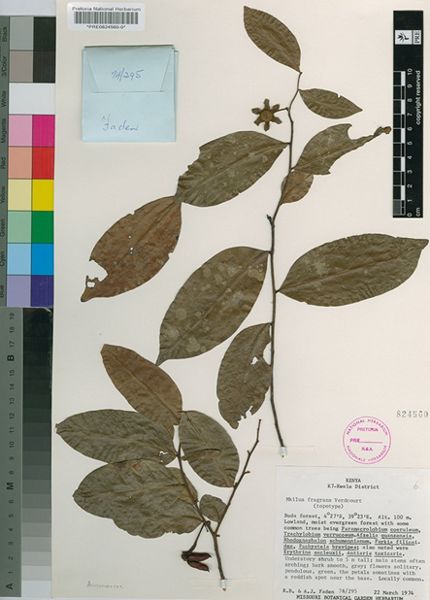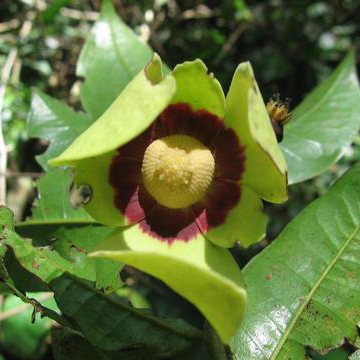
The Mkilau fragrans plant is quite interesting, and it has several unique properties which make it integral to the culture of coastal communities in East Africa. From aphrodisiac to wedding decor, the flower is truly unique. In this article, I hope to reveal the mysteries of this coastal delight, as well as raise awareness for the dangers facing the species.
BIOLOGY
Mkilau fragrans are classified as terrestrial shrubs, or even small trees. Typically growing to about 5m in height, the Mkilau fragrans belongs to the Annonaceae family and is located along the coastal forests of East Africa.
ETHNOBOTANY & CHEMISTRY
Essential oils have been extracted for centuries by coastal communities in Kenya—as well as other coastal communities—to provide perfume for social gatherings such as weddings. Mkilau fragrans essential oils are not typically used in used in the perfume industry, however. This results in a lack of incentive to grow these plants, and has ultimately lead to the species to be placed in the “Vulnerable” category in terms of endangerment.
Additionally, Mkiluaynoic acid A, which can be extracted from the fruit of the plant, demonstrates anti-fungal properties.
The fun doesn’t end there. This flower turns out to be an aphrodisiac. Yes…the same flower used in weddings is also the one used in the bedroom. This flower is most notably known for its ability to keep men in the bedroom after the sun has set.
HISTORY
Mkilau fragrans is in a single member genus named after its local Swahili name, and the epithetic name is related to its fragrant flower.
CONCERNS
Mkilau fragrans is currently vulnerable to becoming extinct for 2 main reasons. First, growers have little to no incentive to grow this plant for commercial use, as it is underexploited by the perfume industry and does not produce much profit. Second, there is a lack of passing down information from growers to the next generation. Younger generations tend to be more engaged in education and do not seem to care as much about traditional practices.
The extinction of this flower would not cause much of an economic impact, however it would be detrimental to the local culture. There would be a loss in lexicon content in reference to weddings, and bedroom affairs.
LEGEND
Growers of Mkilau fragrans passed down their knowledge to their sons, as this plant is particularly tricky when getting it to flower. There is a belief that using “fish water” to fertilize the plants leads to higher rates of flowering.
Conclusion
With Mkilau fragrans is difficult to grow, it is intrinsic to the coastal culture. Thus, measures should be made to preserve its population. This would most likely involve either promotion of its potential in the perfume industry, or reemphasizing the cultural importance to young growers.
Bibliography
Baraza, L D. “C18 Tetraynoic Fatty Acids and Essential Oil Composition of Mkilua Fragrans.” Natural Product Research., U.S. National Library of Medicine, Feb. 2006, http://www.ncbi.nlm.nih.gov/pubmed/16319012.
World Annonaceae, annonaceae.myspecies.info/file-colorboxed/17.
Muhammed, Najya, et al. “Conservation And Cultural Aspect Of Mkilua Fragrans Verdc. At The Kenyan Coastal Lowlands.” INTERNATIONAL JOURNAL OF SCIENTIFIC & TECHNOLOGY RESEARCH VOLUME 3, May 2014, http://www.ijstr.org/final-print/may2014/Conservation-And-Cultural-Aspect-Of-Mkilua-Fragrans-Verdc-At-The-Kenyan-Coastal-Lowlands.pdf.
